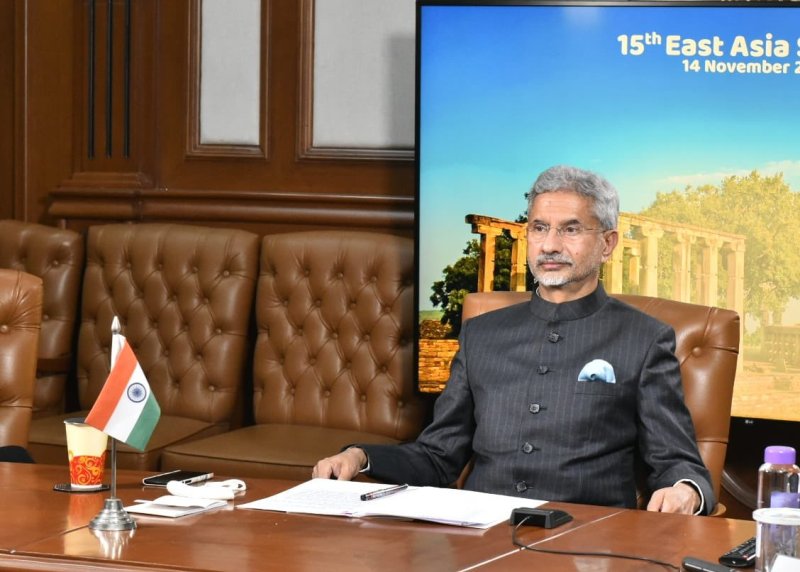India will not accept differential security standards for its embassies: S Jaishankar

New Delhi/UNI: External Affairs Minister S Jaishankar has said that India will not accept differential standards of security for its embassies and high commissions abroad and that the UK government failed to meet its obligation to provide security for the Indian High Commission, following the vandalization by pro-Khalistani supporters in London.
Answering a question regarding the incident at a talk in Bengaluru, Jaishankar also said that freedom of expression “doesn’t extend to violence, it doesn’t extend to someone desecrating my national flag”, and that freedom of speech and civil liberties “should not be misused to espouse radicalism, violence, terrorism”.
“In this particular case, in the UK, whenever a country sends an embassy anywhere abroad it is the obligation of the receiving country to provide security for the diplomats to do their work. It is the obligation of the receiving country to ensure that the embassy or the high commission or the consulate, and their premises are respected.
“These obligations were not met. That day when those vandals appeared before the high commission, what was our expectation was not there in terms of security for the high commission.
“So, we’ve had conversations with the British government after that; the next time it happened, you saw, things were a bit different. But it is our expectation. Many countries are casual about it, they have a different view of their own security, and a different view of other people’s security," said Jaishankar.
“But I can tell you as Foreign Minister, we are not going to accept these kinds of differential stands,” he said at the event held by the BJYM Yuva Samvad.
He also said that “Freedom of expression doesn’t extend to violence, it doesn’t extend to someone desecrating my national flag, that is not freedom of expression.
“We need to be firm about it, to call out other countries when these things happen; we should not be cowed down because something is happening in London, something is happening in Canada, therefore we have to accept it.
“If we have strong views and my view. I tell people, you can have views about me, but I will have views about your views. I will challenge it if I see you factually wrong and distorting reality. Don’t think diplomacy means I will shut up and put up, I will not.
“Today there is confidence, we have reached that stage today to display that. Nobody argues with the fact that there should be freedom of speech, that there should be civil liberties; but these should not be misused to espouse radicalism, violence, terrorism; there is a difference between having rights, and misusing rights," he said.
“And when other governments don’t appreciate this difference, I think they need to be reminded, sometimes effectively,” he added.
On March 19 night, India summoned the senior-most UK diplomat in New Delhi to convey its strong protest after some Khalistani supporters removed the Indian flag from outside the Indian High Commission in London.
India had also demanded an explanation for the "complete absence of British security" that allowed the Khalistani elements to enter the Indian High Commission premises.
Two days later, in what was being reported as a tit-for-tat move, the extra security barricades outside the UK High Commission in New Delhi and outside the residence of the UK High Commissioner were removed by Delhi Police.
On March 22, London police massively beefed up security outside the Indian High Commission for a Khalistani protest held there, with the protesters kept firmly on the opposite side of the road.




